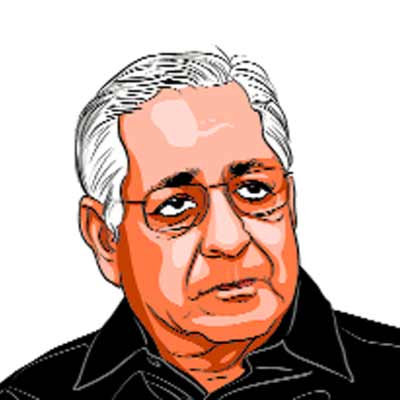Opinion June 1975 Emergency Under Wraps
Imposition of the June 1975 Emergency on the nation was a fateful event in the life of independent India
June 1975 Emergency Under Wraps
Imposition of the June 1975 Emergency on the nation was a fateful event in the life of independent India. It witnessed the temporary demise of democracy in our country because in the words of the Supreme Court,civil liberties were withdrawn to a great extent; important fundamental rights of the people were suspended; strict censorship on the press was placed; and judicial powers were crippled to a large extent. Fortunately after the 1977 elections,the Emergency was revoked. Nonetheless,citizens are entitled to know about the events preceding the Emergency,the true and predominant considerations which led to its imposition,reasons for the ready and willing manner in which the then President Fakhruddin Ahmed gave his assent and a host of other related issues. The object of having this information is not for raking up the sordid past and for condemnation of the persons responsible but to analyse the mechanisms and structures which enabled the swift imposition of emergency and to eliminate or modify them to prevent any future recurrence.
The Central Information Commission under the Right To Information Act,in its order dated February 3,in response to a query,directed the competent authorities in the PMO to ensure that records relating to the Emergency,an important event in the history of post-Independence India,be retrieved or traced and preserved for future for citizens to access and cannot be allowed to get lost in the labyrinth of government offices. The reply from the PMO was that a thorough search was made to retrieve or trace records of correspondence between the then PM Indira Gandhi and the then President relating to proclamation of emergency but no such records were found.
This is shocking. Apparently,it is a ruse to prevent disclosure of vital facts and information which the nation is entitled to know. Describing the search as thorough is an eyewash without revealing details about when the search was made,its scope,reach and its duration. The present is a fit case for a PIL seeking appropriate directions in the matter from the Court.
Corruption and Equality
A striking feature about corruption is its universal reach and observance of the principle of Equality. It strikes all without discrimination and makes no distinction between nations,communities,political systems and gender. The US Foreign Corrupt Practices Act 1977 [FCPA prohibits American companies from bribing foreign officials to attract or keep business. Those who have inter alia come under its net are the son of the president of Equatorial Guinea and Siemens of Germany who are accused of paying $100 million in bribes to Argentine officials,including the former President Carlos Menem. The World Bank estimates that $1 trillion in bribes is paid annually to government officials. According to Transparency International,a global fighter against corruption,in Africa alone $148 billion is siphoned off annually. However it would be fatalistic to assume that bribery is endemic to the human condition. Fortunately there is determination in the officials of the FCPA to root out corruption which is evident because some of the people we accuse are fabulously rich. And they are often fabulously powerful people who can get fabulous lawyers. There is no dearth of these fabulous categories in our country.
Coining Names
We Indians have a natural genius for coining expressions with distinctive nuances. First on the list is chamchagiri with its variants of chamcha and chamachi. Sycophancy is an inadequate translation. Next is charsobis which signifies more than a mere cheat. Dadagiri is in common usage and implies recourse to bullying tactics. Of late,Mamatagiri has surfaced,as an adjunct of dadagiri,and an assertion of female power. The newly inducted Railway minister has earned the sobriquet of Roll back Roy owing to his rolling back the modest and sensible rail fare hikes of his predecessor Dinesh Trivedi. Incidentally,lawyers have a battery of nicknames ranging from googlimaster for a tricky lawyer to topmaro for one who bluffs. Alas,the contribution of Indians to the richness and expansion of English language has not been recognised.


